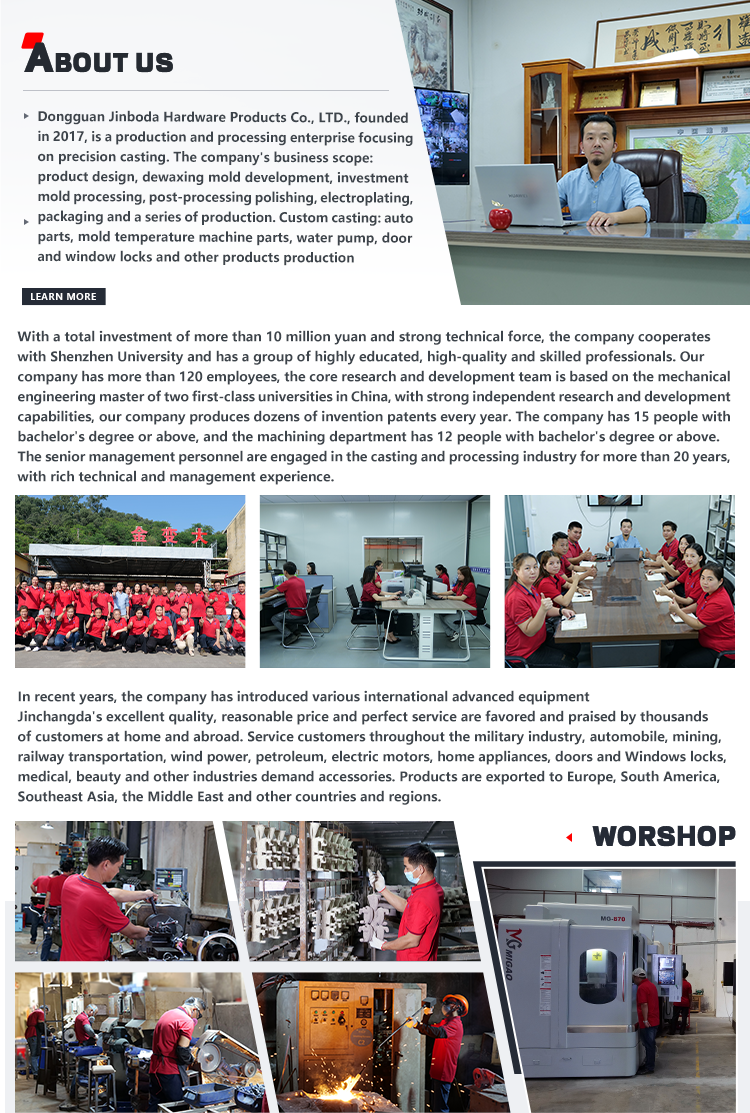| Availability: | |
|---|---|
| Quantity: | |








0000472
JINBIANDA





Railway Equipment Parts: Foundries are involved in the production of railway components such as wheels, axles, and bogie frames. These parts must meet strict safety and quality standards to ensure the reliable operation of trains. The casting process can provide the necessary strength and dimensional accuracy, and also allows for the use of special materials to resist wear and corrosion.
Aerospace Components (Non-Critical): While the aerospace industry has strict requirements for components, some non-critical parts can be produced by the foundry industry. Examples include engine mounts, brackets, and certain structural components. These parts still need to meet high-quality standards in terms of strength, weight, and dimensional tolerance, and the foundry process can be tailored to meet these specific requirements.
Marine Equipment Parts: In the marine industry, foundries produce components for ships and offshore platforms, such as propellers, rudder stocks, and engine blocks. These parts need to be resistant to corrosion from seawater and have high strength to withstand the dynamic loads in the marine environment. The casting process can use appropriate alloys and coatings to enhance the corrosion resistance of the components.
Power Generation Equipment Parts: Foundries supply parts for power plants, including turbine blades, casings, and generator housings. These components must operate under high temperatures and pressures, and the foundry process can ensure the required material properties and dimensional precision. Advanced casting techniques are often used to produce complex shapes and improve the efficiency of power generation equipment.







Railway Equipment Parts: Foundries are involved in the production of railway components such as wheels, axles, and bogie frames. These parts must meet strict safety and quality standards to ensure the reliable operation of trains. The casting process can provide the necessary strength and dimensional accuracy, and also allows for the use of special materials to resist wear and corrosion.
Aerospace Components (Non-Critical): While the aerospace industry has strict requirements for components, some non-critical parts can be produced by the foundry industry. Examples include engine mounts, brackets, and certain structural components. These parts still need to meet high-quality standards in terms of strength, weight, and dimensional tolerance, and the foundry process can be tailored to meet these specific requirements.
Marine Equipment Parts: In the marine industry, foundries produce components for ships and offshore platforms, such as propellers, rudder stocks, and engine blocks. These parts need to be resistant to corrosion from seawater and have high strength to withstand the dynamic loads in the marine environment. The casting process can use appropriate alloys and coatings to enhance the corrosion resistance of the components.
Power Generation Equipment Parts: Foundries supply parts for power plants, including turbine blades, casings, and generator housings. These components must operate under high temperatures and pressures, and the foundry process can ensure the required material properties and dimensional precision. Advanced casting techniques are often used to produce complex shapes and improve the efficiency of power generation equipment.


